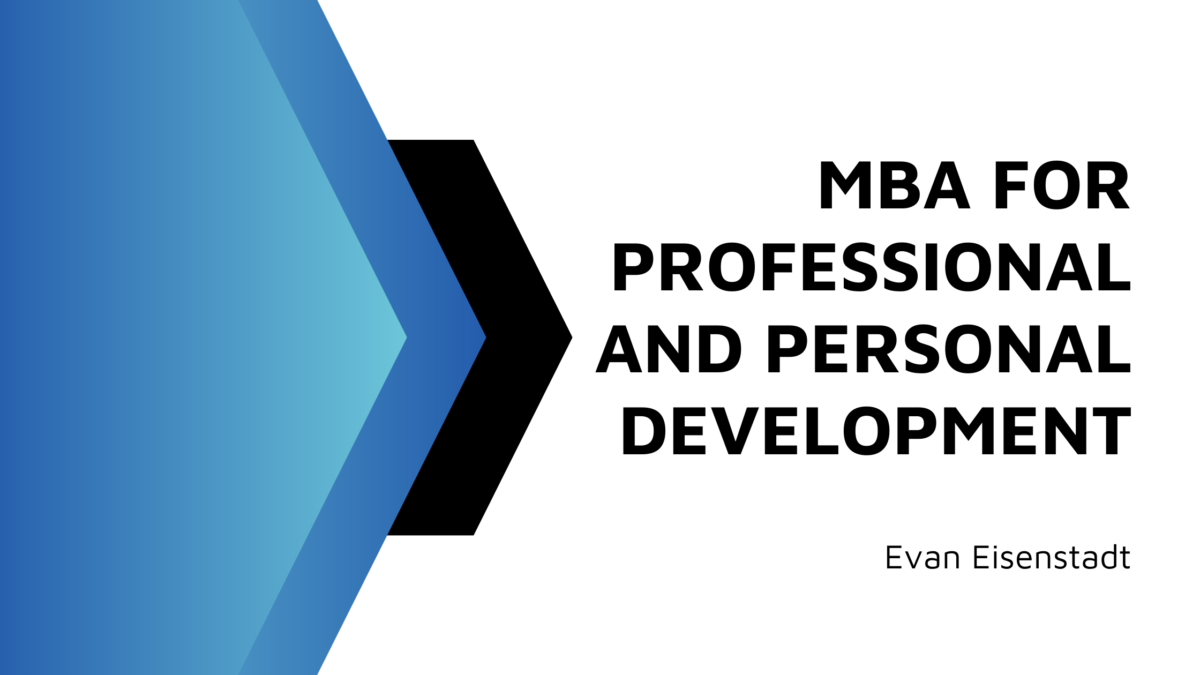The ongoing expansion of knowledge and skills through continuous learning keeps learners mentally sharp and keeps their skills updated with the latest industry innovations and standards. Programs for Master’s in Business Administration (MBA) are tailored to meet the challenges facing today’s leaders and enable students to take the next career step upon graduation. MBA classes provide students with the tools to transition to managerial roles, to move up from junior- level positions to more senior roles, and to receive promotions into executive leadership positions.
There are also considerable financial incentives for pursuing an MBA. Studies show that the cost of an MBA is recovered within 44 months of graduation. The average increase in salary immediately after graduation is about 75%, and the average 10-year return on investment (ROI) is approximately $500,000 (Douhl). Having employees with MBA degrees also benefits the companies they work for. MBA graduates have skills, tools, and knowledge that are directly applicable to the business of many companies in a variety of industries. Graduates can apply new approaches to business challenges and can also mentor teammates on how to apply these strategies. Going back to school after being out of the classroom, whether for 1 year or 30 years, can be intimidating, but working towards an MBA is an extremely rewarding experience that benefits individuals and the companies they support.
MBA Benefits
A master’s degree is critical to maintain credentials in field. I believe it is the equivalent of what a bachelor’s degree was 30 or 40 years ago. An MBA will meet the needs of people in technical fields looking to gain knowledge and skills that transfer to leadership and executive roles. MBA programs consist of classes in accounting, finance, economics, marketing, management, supply chain, and information systems to name a few. They focus on leadership, teamwork, and the latest industry innovations and skills. The culmination of the program is a capstone project which requires students to integrate what they have learned throughout the program to solve real world business challenges.
Strong evidence shows that a higher education degree leads to career advancement. The combination of learning new skills, networking, and obtaining licenses and credentials qualify graduates for roles that were previously unobtainable. Most employers hiring for managerial and leadership positions either prefer, or, in the majority of cases, require a master’s degree. As previously stated, surveys show that professionals with a graduate degree earn significantly more than those with a bachelor’s degree or no degree but industry experience. One MBA survey shows employers offering MBA graduates a median salary of $115,000 versus $65,000 for recent bachelor’s degree graduates (MBA.com). New hires who came direct from industry were offered a median salary of $95,000, which is $20,000 less than those employees with an MBA (MBA.com). The most jarring statistic was the salary for new hires with an MBA s at large consulting companies. There, the median salary was $145,000 (MBA.com). The payback period is extremely fast for MBAs ranging in cost from $15,000 to $100,000 depending on the program. There are also several scholarships and corporate tuition reimbursement programs available to offset some of the tuition expenses.
Conclusion
An MBA benefits both graduates and the companies they work for. MBA graduates have skills, tools, and knowledge that are directly applicable to the business of many companies in a variety of industries. They can apply new approaches to business challenges and can also mentor teammates on how to apply these strategies. There are several ways to offset the upfront cost of an MBA and the payback period is swift due to the higher salaries earned post-graduation. The quest for knowledge may not end here. There are numerous certifications and continuing education programs to pursue after earning an MBA. Graduates may even be immediately qualified to teach and pass on their knowledge to the next generation.
Call to Action
Anyone thinking about pursuing an MBA should take action. There will be immediate payback, personal achievement, and satisfaction. People should research the application process for local and online programs that fit their schedule and budget to find the program that works best for them.


